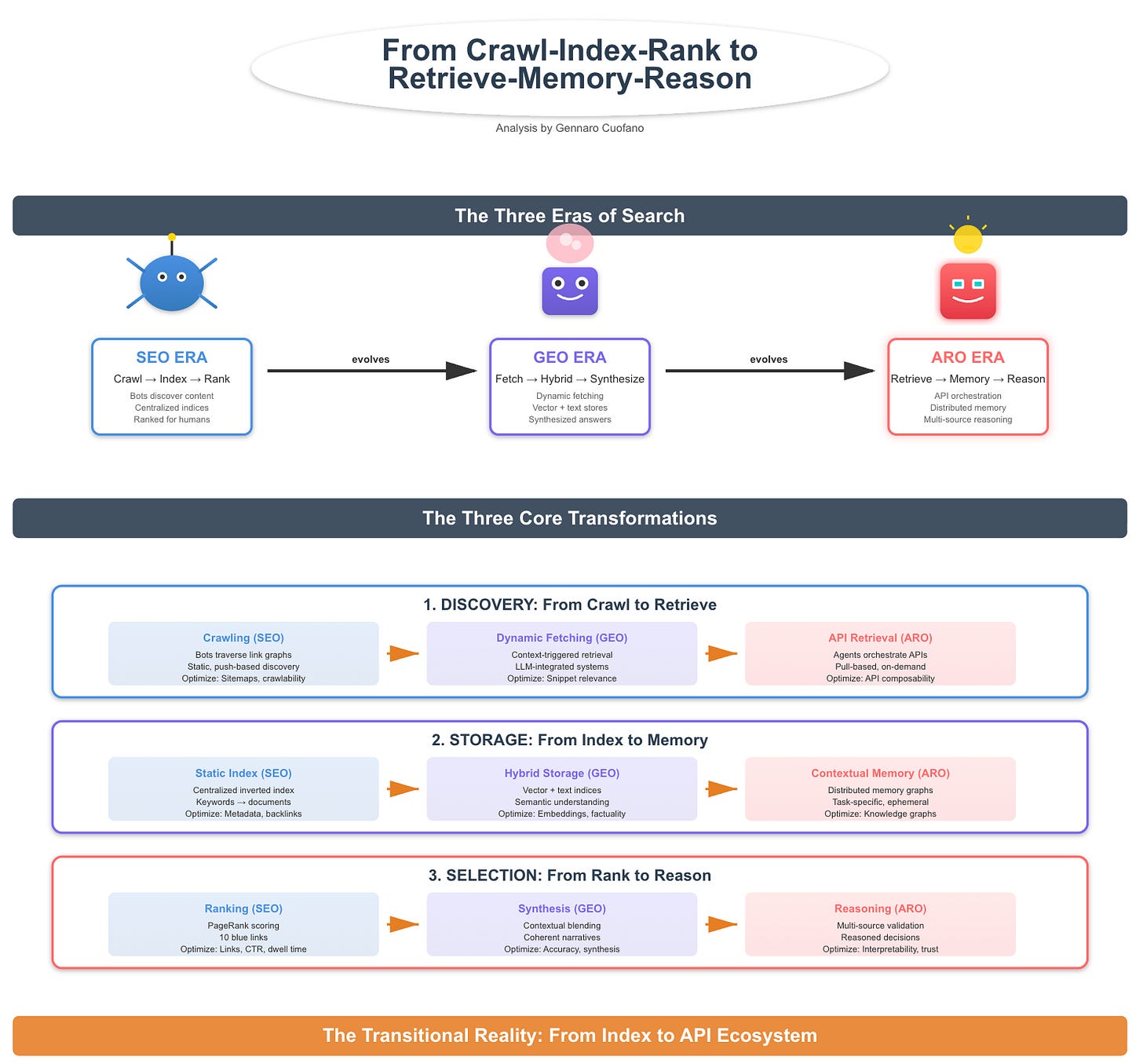AI & Search: From Crawl-Index-Rank to Retrieve-Memory-Reason
For two decades, “crawl–index–rank” has been the foundational architecture of information discovery. It described how search engines found, organized, and surfaced content for human users.
But in the agentic era, this trinity undergoes a profound transformation. The same three-stage process now describes how autonomous agents interpret knowledge for other machines—shifting from a model optimized for human browsing to one designed for machine reasoning.
This isn’t merely a semantic evolution. It represents a fundamental restructuring of how digital information flows through the economy. Where search engines once acted as librarians organizing a static collection, agentic systems operate as dynamic reasoners building contextual understanding on demand.



